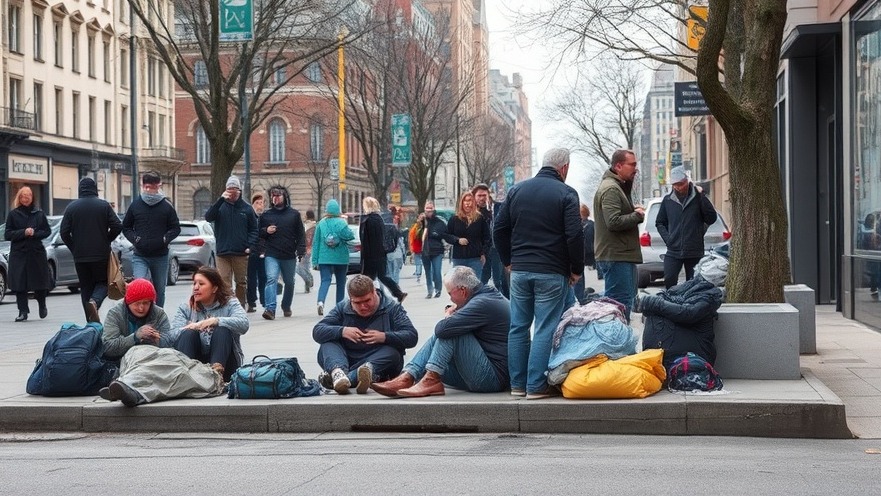
Tracking Progress in Austin's Homelessness Response
In an encouraging development, Austin's efforts to combat homelessness are showing tangible results, according to the 2025 ECHO Report. More than 3,000 individuals successfully transitioned into stable housing within the past year, thanks to collaborative initiatives spearheaded by city officials, nonprofits, and community partners. This report brings to light significant advancements made by the Ending Community Homelessness Coalition (ECHO) and the Homelessness Response System (HRS), bolstered by data from the Homeless Management Information System (HMIS).
Concrete Improvements in Housing Capacity
The statistics presented in the report are compelling. Emergency shelter beds have surged by 70% since 2022, while permanent housing units have been amplified by 35%. Over the course of four years, the total number of beds available has doubled, with a remarkable growth of 108%. These figures are not just numbers; they tell the story of lives being transformed from crisis to stability through targeted support and infrastructure improvements.
Marshalling Community Resources
Austin Mayor Kirk Watson stressed the importance of community collaboration when addressing homelessness: “This progress is not coincidental; it’s the direct result of relentless dedication from outreach teams, service providers, and housing partners.” This sentiment echoes the remarks from David Gray, the city’s Homelessness Strategy Officer, who underscored enhanced coordination in connecting individuals to essential services in a timely manner. The city’s investments are paying off, reflecting a model that other cities could look to emulate.
Factors Behind the Decline in Homelessness
Another promising takeaway from the report is the decline in newly homeless individuals in the past year—the first of its kind in five years. This decrease hints at the positive impact of preventive measures and social programs designed to intervene before individuals find themselves in a housing crisis. Initiatives that prioritize protective measures are vital, especially as rising rent prices and housing shortages continue to plague the city.
Challenges Ahead: The Road to Lasting Solutions
Despite the progress, the report cautions that challenges persist. Many individuals are still in lengthy waiting periods for housing and support services. Mayor Pro Tem Vanessa Fuentes emphasized, “We still have people who are waiting too long for housing,” shedding light on the reality that gaps in service provision remain. The disparities in representation among demographics—most notably among Black and elderly populations—also call for immediate attention and improved strategies to ensure equity in service delivery.
Engagement and Accountability: A Community Effort
City leaders have acknowledged the foundational work laid by previous administrations as crucial to reaching the current milestones. This highlights the significance of continuity in social policies and approaches to homelessness. Watson described the significance of collective resilience and involvement, stating that moving forward, the city must maintain a commitment to accountability, compassion, and continuous improvement.
Community Response and Future Directions
The findings of the ECHO report serve not only as a measure of current success but also as a roadmap for future initiatives. As city officials continue to collaborate with community partners, the need for a persistent focus on innovative solutions and the expansion of housing resources remains critical in battling homelessness in Austin.
The Way Forward: Informed Actions and Local Engagement
Understanding the complexities of homelessness calls for informed actions from all corners of the community. Residents can play an active role in supporting local initiatives and staying abreast of developments concerning housing policies and community support systems. As the report reveals, the path to a sustainably inhabited Austin is collaborative; everyone has a part to play.
For more details about the city’s efforts in addressing homelessness, please visit Austin's Homelessness Office.
 Add Element
Add Element  Add Row
Add Row 



Write A Comment